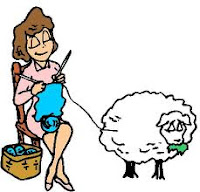Admit it – we joke about being ‘normal.’ If we stopped to think about it, and be
honest, we’re have to admit we behave rationally only part of the time; the
rest of the time we take ridiculous risks and at times behave in ways we can’t
explain.
So what could that comment possibly have to do with
writing? Our readers should not have to
work too hard to suspend disbelief.
Simply, our stories need to be believable. It has everything to do with a character’s
motivation. The dilemma we have then? If you create characters who behave totally ‘normal’
all the time, you’ll produce a flat, boring, lifeless book.
So what is the key? Characters
with flaws are actually something we can relate to or even understand. Yep, it’s back to that simple comment,
‘nobody is perfect.’
Would you agree that love and of course let’s add sex – makes
people behave illogical, unreasonable, foolish, crazy, ridiculous, absurd,
silly, etc? Even I prefer the
day-whiskered cowboy who makes a fun-fool of himself after too many beers, over
the pin-striped suit guy with perfect teeth and not a hair out of place who
won’t let go and have fun. I prefer the
belly laugh over the carefully controlled, polite laugh in a hand.
You must instill a strong enough motivating factor—even an
irrational one—so you can interject a plausible
reason for erratic actions on the part of your characters. And let’s face it, those
characters are far more appealing and exciting to read about than those who are
behaving rationally.
Also keep in mind that you can create several twisting sub-plots
when you give your characters obsessions, quirks, issues, eccentricities,
peculiarities, habits, characteristics, features — by chance or not—that can
act as a thread through the story.
Consider someone who is infatuated girls who wear cowboy hats,
and can become single-mindedly so, leading to horrible errors in judgment.
Control freaks turn narcissistic and are prone to making fatal decisions:
“Come on, Jordan, we can catch the mountain lion’s trail in the
morning. It’s dangerous tracking her at
night.”
“Shut the hell up! I’m
the best tracker in these parts day or night.
No mountain lion is getting the best of me!”
What follows is that the obsessed character must either find favor
(or be forced to it), or reject change and stick with their fixated, self-serving
life to the end. Either way, it does make for powerful and gripping storytelling.
You don’t need a degree in psychology to incorporate the
obsessed or strange side of human nature in your books. All it takes is a little unpredictability.
Choose which of your characters is the weakest—which one
believably has issues. Which one are you scared to deal with?
Now, give this character the devil’s advocate workout and
determine what characteristics will add dimension to the story. Let’s say your
character is obsessive about being the last one entering a room for a meeting –
he likes the all-eyes entrance and the power it gives him.
OK: We expect this from him and now this character becomes more
interesting, and we have a certain expectation he will never be early . . . and
we have a certain inkling . . . a sort
of uh-oh: What’s going to happen when suddenly a lot is riding on him
being somewhere on time—or someone might be shot? This kind of situation
does two things; it makes a character stronger as a gripping ruse, and it makes
him more haunting or memorable.
A character’s weirdness or quirks can be the one thing that keeps
your readers speculating to the end. It can
keep them captivated, riveted, enthralled, mesmerized, transfixed, as they attempt
to unravel and conceive theories. Who
knows, they might not even notice your awkward character—but they will get a
feeling that for some strange reason, this character just seems ‘normal’ with
all his imperfections.




No comments:
Post a Comment